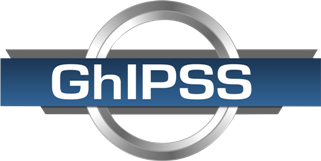The Ghana Interbank Payment and Settlement Systems Limited (GhIPSS) has witnessed consistent growth in the value and volume of its various transactions since its inception and last year was no exception as the value of transactions increased from GH¢174 billion in 2016 to GH¢208 billion, representing a growth of 19 per cent.
This was achieved through its four platforms, including the Cheque Codeline Clearing (CCC) System, which recorded a value of transaction of GH¢179 billion, the Ghana Automated Clearing House (GACH) system which recorded GH¢24.4 billion, and the e-zwich platform which recorded GH¢3.4 billion.
The value of transaction for the gh-link platform was GH¢ 600 million, while GIP, as service on the gh-link platform recorded GH¢83 million.
GhIPSS, sharing its 2017 performance with the media, also indicated that the volumes of transactions increased from 20 million in 2016 to 25 million representing a growth of 20 per cent.
This is good news for the country as it appears more people keep switching to electronic payments with each passing day.
A switch to electronic payment is expected to prevent and or contain risks in payment, clearing and settlement systems; and also help establish a robust oversight and regulatory regime for the payment and settlement system.
It would also bring efficiency to fiscal operations of the government, deepen financial intermediation, as well as promote financial inclusion without risking the safety and soundness of the banking system.
e-zwich
The e-zwich platform recorded the highest increase with a growth of 45 per cent and 56 per cent in value and volume respectively, with international remittances received by the e-zwich recording the highest growth.
Although enrolment figures in 2017 declined by two per cent, a total of 491,121 new enrolments occurred, thus bringing the number of e-zwich cardholders to 2.3 million.
Payments via e-zwich by government agencies and ministries, as well as foreign donors and some private institutions, remained the key driver of growth for e-zwich transactions.
The volume of payment distribution systems (PDS) in 2017 was 2.9 million, representing an increase of 37 per cent over the same period in 2016.
The value of PDS within the same period also increased to GH¢940 million, representing an increase of 39 per cent over the same period in 2016.
gh-link
In 2017, gh-link transaction recorded an increase of 35 per cent in total value as it increased from GH¢447 million to GH¢603 million.
While ATM withdrawals are the main drivers of gh-link transactions, POS transactions recorded the highest growth in 2017 as they increased from GH¢168,610 to GH¢ 281,330.
GIP platform
The GhIPSS Instant Pay (GIP) service at the end of 2017 had processed a total of 41,795 transactions and the value of these transactions amounted to GH¢83 million.
The growth of GIP transactions was fuelled by the adoption of the product by third party payment gateways and international remittance companies.
Outlook for 2018
Outlining its objectives for 2018, GhIPPS pointed out that it intended to promote its GIP platform and implement its electronic bill payment which seeks to provide a platform that will allow billers, such as utility service providers receive payments from customers instantly through the GIP service.
GhIPSS also intends to partner the mobile network operators (MNO) to promote functionalities of the mobile money interoperability service, promote e-zwich as a financial instrument and promote bulk payments.
It also intends to partner third party payment companies and promote domestic card transactions through the gh-link EMV card.
Source: Daily Graphic
 The public will have to accept electronic payment channels as their default form of payment, to stay safe as scientists predict that the Coronavirus will linger on for a while. This is because quite a number of electronic payment channels do not require physical contacts for payments to be effected.
The public will have to accept electronic payment channels as their default form of payment, to stay safe as scientists predict that the Coronavirus will linger on for a while. This is because quite a number of electronic payment channels do not require physical contacts for payments to be effected.